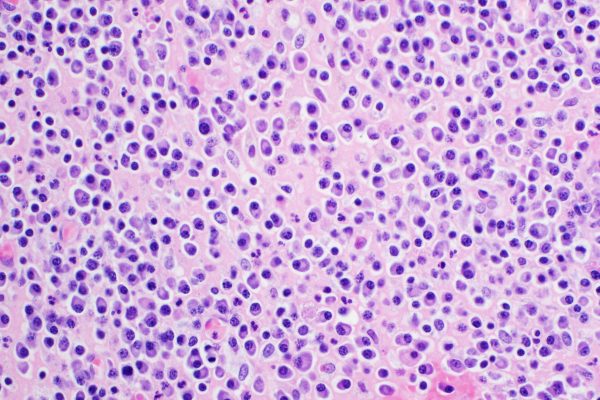
Previously, the IKEMA study demonstrated that the addition of isatuximab (Isa) to carfilzomib and dexamethasone (Kd) resulted in improved progression-free survival (PFS) in patients with relapsed multiple myeloma, compared to Kd alone. This subgroup analysis, in line with the overall findings of IKEMA, demonstrates that the Isa-Kd combination consistently yields higher rates of progression-free survival, minimal residual disease negativity (MRD-), and MRD- complete response compared to Kd alone, regardless of the time of relapse.
Patients with multiple myeloma (MM) facing early relapse (within 12 months from therapy initiation) are considered a high-risk group, underscoring the urgent need for more effective treatments to enhance outcomes. Previously, the IKEMA study demonstrated that the addition of isatuximab (Isa) to carfilzomib and dexamethasone (Kd) resulted in improved progression-free survival (PFS) in patients with relapsed MM, compared to Kd alone. This IKEMA subgroup analysis compared the efficacy and safety of Isa-Kd and Kd alone in patients who experienced early and late relapse.
The prospective phase III IKEMA trial enrolled 302 eligible patients with relapsed and/or refractory (R/R) MM who had received one to three prior lines of therapy. These patients were randomly assigned (3:2) to receive Isa-Kd or Kd. Early relapse was defined as relapse that occurred <12 months from initiation of the most recent line of therapy for patients with ≥2 prior lines of therapy, <18 months for patients with one prior line of therapy, or <12 months following frontline autologous stem cell transplantation. The late relapse subgroup included patients who relapsed ≥12 months from initiation of the most recent line of therapy for those with ≥2 prior lines of therapy and ≥18 months for patients with one prior line of therapy.
In total, 61 of 179 (34.1%) patients in the Isa-Kd arm and 46 of 123 (37.4%) patients in the Kd arm were classified as early relapsed. Late relapse was observed in 104 of 179 (58.1%) patients in the Isa-Kd arm and 72 of 123 (58.5%) patients in the Kd arm. After a median follow-up of 44 months, Isa-Kd significantly improved median PFS in both early relapsed (24.7 vs. 17.2 months; HR[95%CI]:0.662[0.407-1.077]) and late relapsed patients (42.7 vs. 21.9 months; HR[95%CI]:0.542[0.355-0.826]), compared to Kd alone. The overall response rate (ORR) was reported at 82.0% vs. 82.6% in early relapsed patients, and at 90.4% vs. 86.1% in late relapsed patients receiving Isa-Kd and Kd alone, respectively. A higher proportion of patients achieved minimal residual disease negativity (MRD-) in the Isa-Kd group, both in early (24.6% vs. 15.2% in the Kd group) and late relapse (37.5% vs. 16.7%) relapsed groups. Similarly, Isa-Kd treatment resulted in higher rates of MRD-complete response (CR) in both early (18.0% vs. 10.9%) and late relapsed (30.8% vs. 13.9%) patients, compared to Kd alone.
Among early relapsed patients, rates of all-grade (98.4% vs. 97.8%), grade ≥3 (83.6% vs. 80.4%), and serious (68.9% vs. 65.2%) treatment-emergent adverse events (TEAE) were similar between the Isa-Kd and Kd arms. In late relapsed patients, rates of all-grade TEAE (99.0% vs. 97.2%) were similar between treatment arms, but rates of grade ≥3 (82.4% vs. 70.4%) and serious TEAEs (66.7% vs. 54.9%) were higher in the Isa-Kd arm. The mortality rates were 4.9% vs. 6.5% in early relapse patients, and 5.9% vs. 2.8% in late relapsed patients treated with Isa-Kd or Kd alone, respectively. Of note, the longer treatment duration in the Isa-Kd arm in late relapse patients may have contributed to the increased frequency of grade ≥3, serious TEAE, and deaths in this subgroup.
The combination of Isa-Kd consistently yields higher rates of PFS, MRD- and MRD-CR compared to Kd alone in patients with MM, regardless of the time of relapse. These results support the addition of Isa to Kd as standard-of-care therapy for R/R MM regardless of relapse timing.
Reference